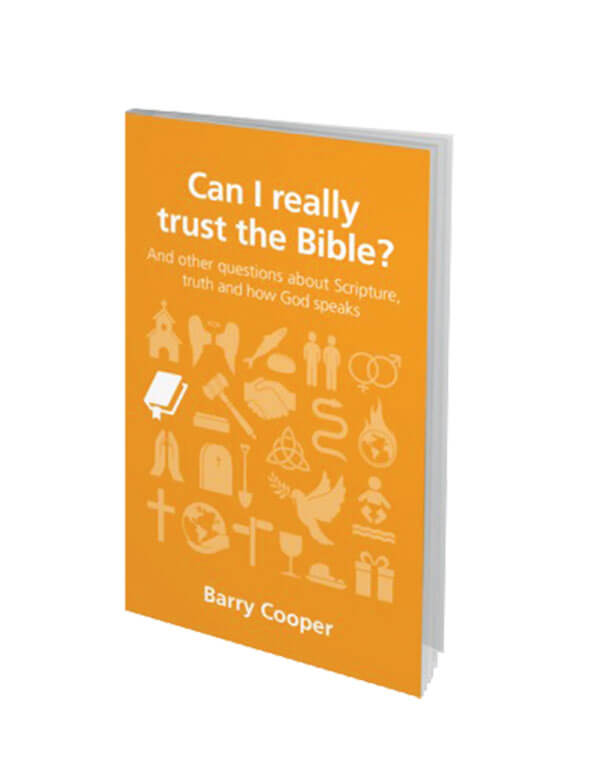How Can I know God?
What is Christianity? Some say it is a philosophy, others say it is an ethical stance, while still others claim it is actually an experience. None of these things really gets to the heart of the matter, however. Each is something a Christian has, but not one of them serves as a definition of what a Christian is. Christianity has at its core a transaction between a person and God.
A person who becomes a Christian moves from knowing about God distantly to knowing about him directly and intimately. Christianity is knowing God.
“Now this is eternal life; that they may know you, the only true God, and Jesus Christ, whom you have sent.” –John 17:3
Why do I need to know God?
Our desire for personal knowledge of God is strong, but we usually fail to recognize that desire for what it is. When we first fall in love, when we first marry, when we finally break into our chosen field, when we at last get that weekend house — these breakthroughs arouse in us anticipation of something which, as it turns out, never occurs.
We eventually discover that our desire for that precious something is a longing no lover or career or achievement, even the best possible ones, can ever satisfy. The satisfaction fades even as we close our fingers around our goal. Nothing delivers the joy it seemed to promise. Many of us avoid the yawning emptiness through busyness or denial, but at best there is just a postponement. “Nothing tastes,” said Marie Antoinette.
There are several ways to respond to this:
By blaming the things themselves – by finding fault in everyone and everything around you. You believe that a better spouse, a better career, a better boss or salary would finally yield the elusive joy. Many of the most successful people of the world are like this — bored, discontented, running from new thing to new thing, often-changing counselors, mates, partners, or settings.
By blaming yourself – by trying harder to live up to standards. Many people believe they have made poor choices or have failed to measure up to challenges and to achieve the things that would give them joy and satisfaction. Such people are wracked with self-doubts and tend to burn themselves out. They think, “If only I could reach my goals, then this emptiness would be gone.” But it is not so.
By blaming the universe itself – by giving up seeking fulfillment at all. This is the person who says, “Yes, when I was young I was idealistic, but at my age I have stopped howling after the moon.” This makes you become cynical, you decide to repress that part of yourself that once wanted fulfillment and joy. But you become hard, and you can feel yourself losing your humanity, compassion, and joy.
By blaming and recognizing your separation from God – by seeing that the emptiness comes from your separation from God, and by establishing a personal relationship with Him.
In order to form a personal relationship with God, you must know three things:
1) Who we are:
God’s creation. God created us and built us for a relationship with Him. We belong to Him, and we owe Him gratitude for every breath, every moment, everything. Because humans were built to live for Him (to worship), we will always try to worship something — if not God, we will choose some other object of ultimate devotion to give our lives meaning.
Sinners. We have all chosen (and re-affirm daily) to reject God and to make our own joy and happiness our highest priority. We do not want to worship God and surrender ourselves as master, yet we are built to worship, so we cling to idols, centering our lives on things that promise to give us meaning: success, relationships, influence, love, comfort, and so on.
In spiritual bondage. To live for anything else but God leads to breakdown and decay. When a fish leaves the water, which he was built for, he is not free, but dead. Worshiping other things besides God leads to a loss of meaning. If we achieve these things, they cannot deliver satisfaction, because they were never meant to be “gods.” They were never meant to replace God. Worshiping other things besides God also leads to self- image problems. We end up defining ourselves in terms of our achievement in these things. We must have them or all is lost; so they drive us to work too hard, or they fill us with terror if they are jeopardized.
2) Who God is:
Love and justice. His active concern is for our joy and well-being. Most people love those who love them, yet God loves and seeks the good even of people who are his enemies. But because God is good and loving, He cannot tolerate evil. The opposite of love is not anger, but indifference. “The more you love your son, the more you hate in him the liar, the drunkard, the traitor,” (E. Gifford). To imagine God’s situation, imagine a judge who also is a father, who sits at the trial of his guilty son. A judge knows he cannot let his son go, for without justice no society can survive. How much less can a loving God merely ignore or suspend justice for us — who are loved, yet guilty of rebellion against his loving authority?
Jesus Christ. Jesus is God Himself come to Earth. He first lived a perfect life, loving God with all his heart, soul, and mind, fulfilling all human obligation to God. He lived the life you owed — a perfect record. Then, instead of receiving his deserved reward (eternal life), Jesus gave His life as a sacrifice for our sins, taking the punishment and death each of us owed. When we believe in him: 1) our sins are paid for by his death, and 2) His perfect life record is transferred to our account. So God accepts and regards us as if we have done all Christ has done.
3) What you must do:
Repent. There first must be an admission that you have been living as your own master, worshipping the wrong things, violating God’s loving laws. “Repentance” means you ask forgiveness and turn from that stance with a willingness to live for and center on Him.
Believe. Faith is transferring your trust from your own efforts to the efforts of Christ. You were relying on other things to make you acceptable, but now you consciously begin relying on what Jesus did for your acceptance with God. All you need is nothing. If you think, “God owes me something for all my efforts,” you are still on the outside.
Pray after this fashion: “I see I am more flawed and sinful than I ever dared believe, but that I am even more loved and accepted than I ever dared hope. I turn from my old life of living for myself. I have nothing in my record to merit your approval, but I now rest in what Jesus did and ask to be accepted into God’s family for his sake.” When you make this transaction, two things happen at once: 1) your accounts are cleared, your sins are wiped out permanently, you are adopted legally into God’s family and 2) the Holy Spirit enters your heart and begins to change you into the character of Jesus.
Follow through. Tell a Christian friend about your commitment. Get yourself training in the basic Christian disciplines of prayer, worship, Bible study, and fellowship with other Christians.
Why should I seek God?
On one hand, you may feel that you “need” Him. Even though you may recognize that you have needs only God can meet, you must not try to use Him to achieve your own ends. It is not possible to bargain with God. (“I’ll do this if you will do that.”) That is not Christianity at all, but a form of magic or paganism in which you “appease” the cranky deity in exchange for a favor.
Are you getting into Christianity to serve God, or to get God to serve you? Those are two opposite motives and they result in two different religions. You must come to God because 1) you owe it to Him to give Him your life (because He is your Creator) and 2) you are deeply grateful to Him for sacrificing His Son (because He is your Redeemer.)
On the other hand, you may feel no need or interest to know God at all. This does not mean you should stay uncommitted. If you were created by God, then you owe Him your life, whether you feel like it or not. You are obligated to seek Him and ask Him to soften your heart, open your eyes, and enlighten you.
If you say, “I have no faith,” that is no excuse either. You need only doubt your doubts. No one can doubt everything at once — you must believe in something to doubt something else. For example, do you believe you are competent to run your own life? Where is the evidence of that? Why doubt everything but your doubts about God and your faith in yourself? Is that fair? You owe it to God to seek Him. Do so.
What if I’m not ready to proceed?
Make a list of the issues that you perceive to be barriers to your crossing the line into faith. Here is a possible set of headings:
• Content issues. Do you understand the basics of the Christian message — sin, Jesus as God, sacrifice, faith?
• Coherence issues. Are there intellectual problems you have with Christianity? Are there objections to the Christian faith that you cannot resolve in your own mind?
• Cost issues. Do you perceive that a move into full Christian faith will cost you dearly? What fears do you have about commitment?
Now talk to a Christian friend until these issues are resolved.
Consider reading: Mere Christianity, by C.S. Lewis (MacMillan) and Basic Christianity, by John Stott (IVP)
© 1991, Timothy Keller (used here by permission)

Can I Really Trust the Bible?
For further reading … The Bible makes big claims for itself. But do those claims stand up? Aren’t the stories just legends? Hasn’t the information been corrupted over time? Isn’t the Bible full of mistakes? And isn’t it culturally outdated? In this absorbing little book, Barry Cooper explores these questions – and many others – with warmth, wit and integrity. 
 Chariots of Fire
Chariots of Fire







